'An iconic roster': LeBron, Steph, KD headline all-star cast for Team USA's shot at Olympic glory
LeBron James is going back to the Olympics for the first time in 12 years. Steph Curry is headed to the games for the…
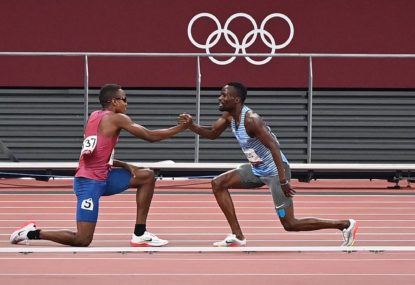
After 16 days of watching the greatest athletes on the planet, we’re finally able to get our breath back from what we’ve witnessed.
What a stellar outing from the Australians, bringing home a whopping 46 medals. From Jess Fox’s redemption to Emma McKeon’s record haul, we were spoilt for choice with great Aussie Olympic moments.
Unless you’ve been living under a rock we all know those moments already so, in the interest of impartiality, we decided to hand-pick our favourite non-Aussie moments from the Games.
Roar editors Benjamin Conkey, Tony Harper, Tim Miller, Stirling Coates and Roar Rookie Blake Johnson who helped steer our coverage for the two weeks have each chosen three of their favourite niche/underrated/under-appreciated moments.
We’d love to hear yours too!
Epic golf playoff for third
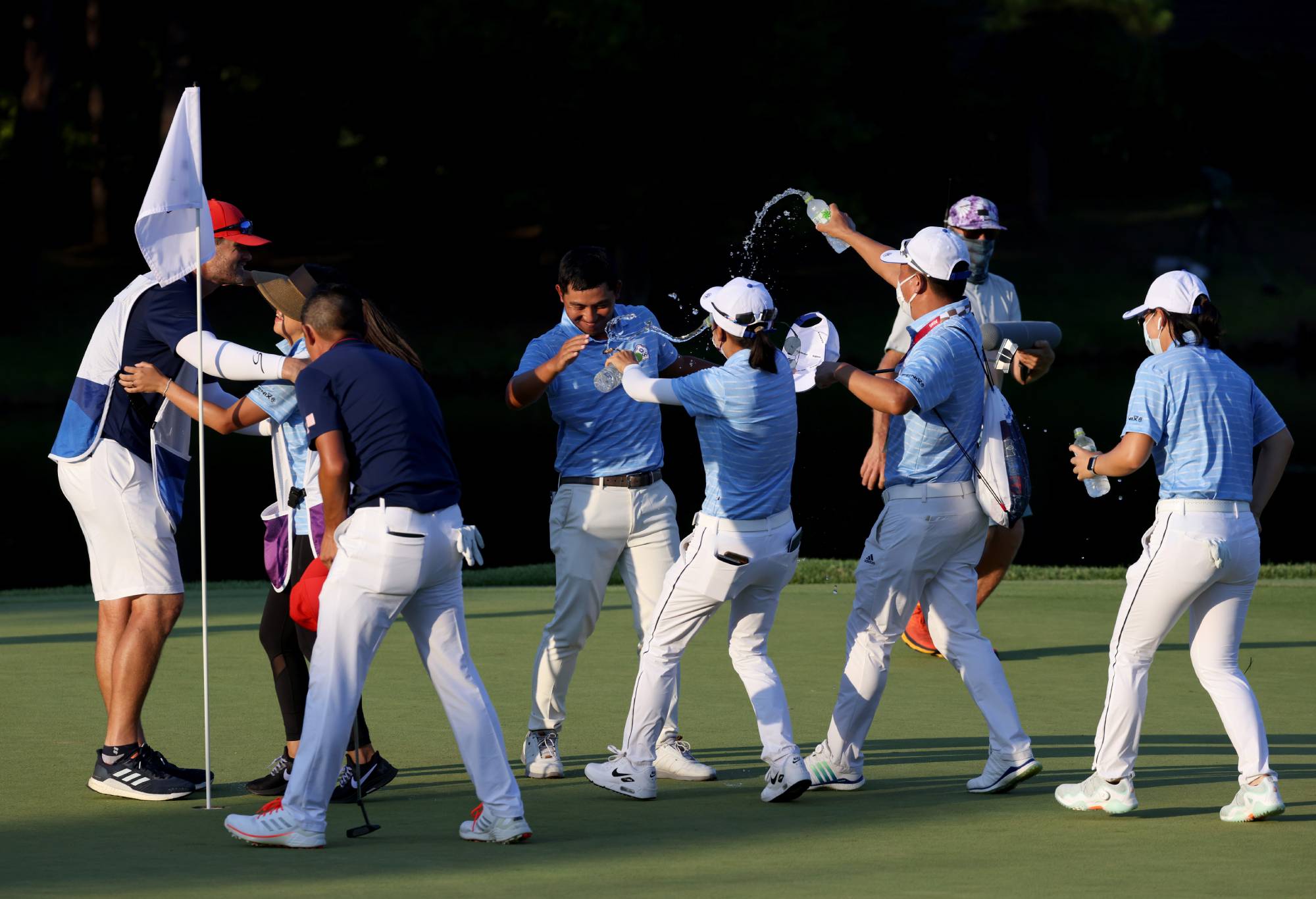
CT Pan wins bronze (Photo by Chris Trotman/Getty Images)
I love my golf but golf at the Olympics just didn’t feel right. Like tennis singles, it’s not the pinnacle of the sport and it wasn’t ‘different’ enough to make it interesting. That being said, the very end of the men’s tournament did spark my interest because it was different.
With Xander Schauffele and Rory Sabbatini finishing in outright first and second to win the gold and silver medal respectively, there was a battle for the bronze medal with seven players tied on -15.
A playoff for third place is something you don’t see on the PGA Tour or any of the majors and I really liked it as a result.
Having that many players vying for the bronze got pretty intense as the players dropped off. C.T. Pan from Taiwan emerged as the winner and his celebrations were epic. He claimed winning bronze was better than winning a tournament on the PGA Tour and who are we to argue?
It made me think that the PGA Tour should have huge prizemoney for the top 3 and then have it massively drop away from 4th place onwards so that playoffs for the top 3 positions become a regular thing. It would give more meaning to tournaments when the leader streaks away to win by four or more strokes.
Credit to a Chinese swimmer
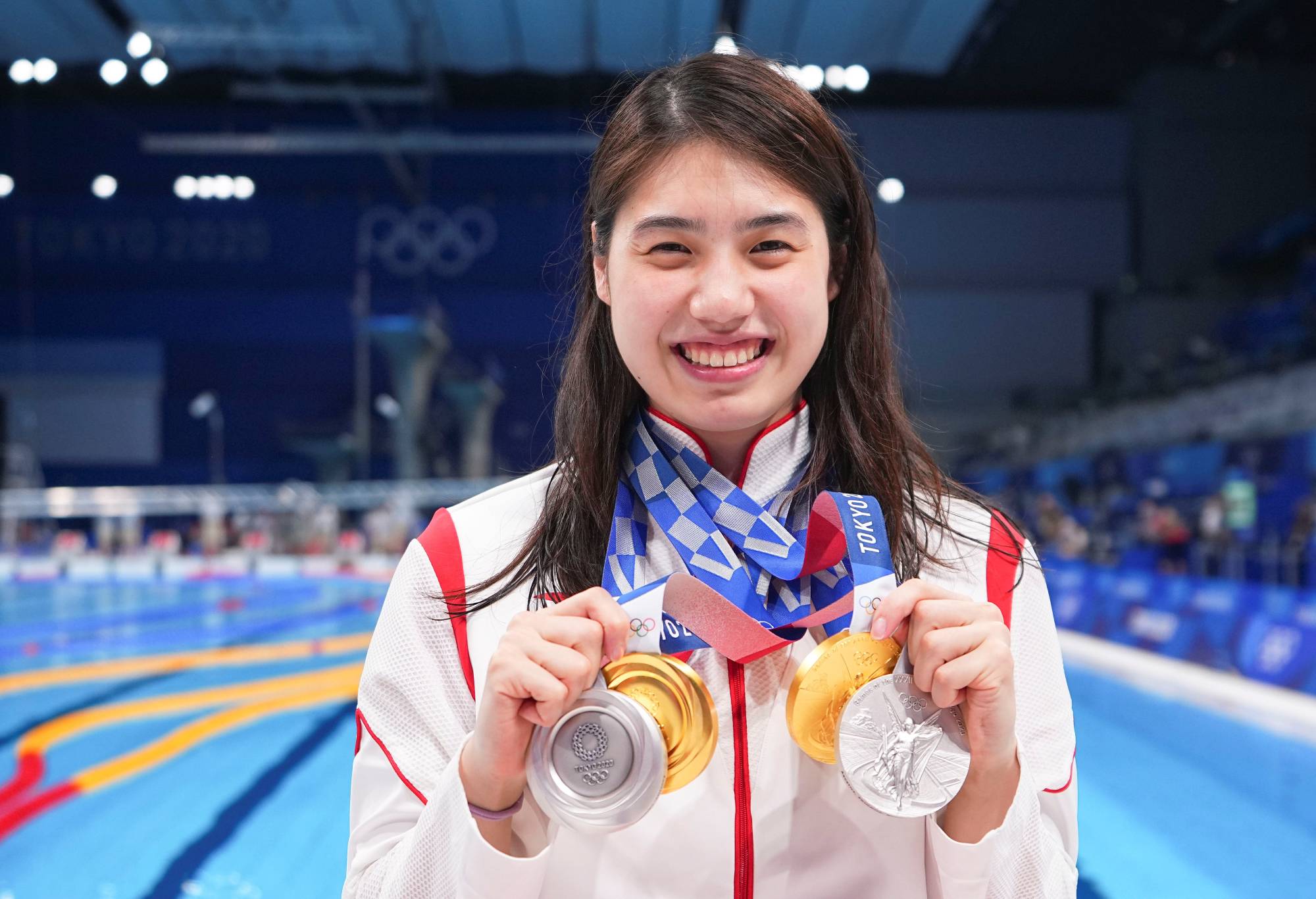
Zhang Yufei (Photo by Xu Chang/Xinhua via Getty Images)
Unfortunately, Chinese swimming has a black mark against it with large-scale doping in the 90s and the recent Sun Yang controversy but you can’t taint current athletes with the same brush. I just had to give a shout-out to Zhang Yufei who wasn’t given enough praise on the Australian coverage.
Her two gold medals were legendary. On the morning of July 29 she broke the Olympic record in the women’s butterfly and then an hour later she helped take China to the 4x200m relay record to upset Australia and the USA.
Incredibly, Zhang was born with a curvature in her spine but her condition was not diagnosed until 2015. “My main discipline is butterfly, which requires the balance of the entire body. I found that something was not right and talked to a doctor,” Zhang said in her athlete profile.
When finishing the marathon was an achievement
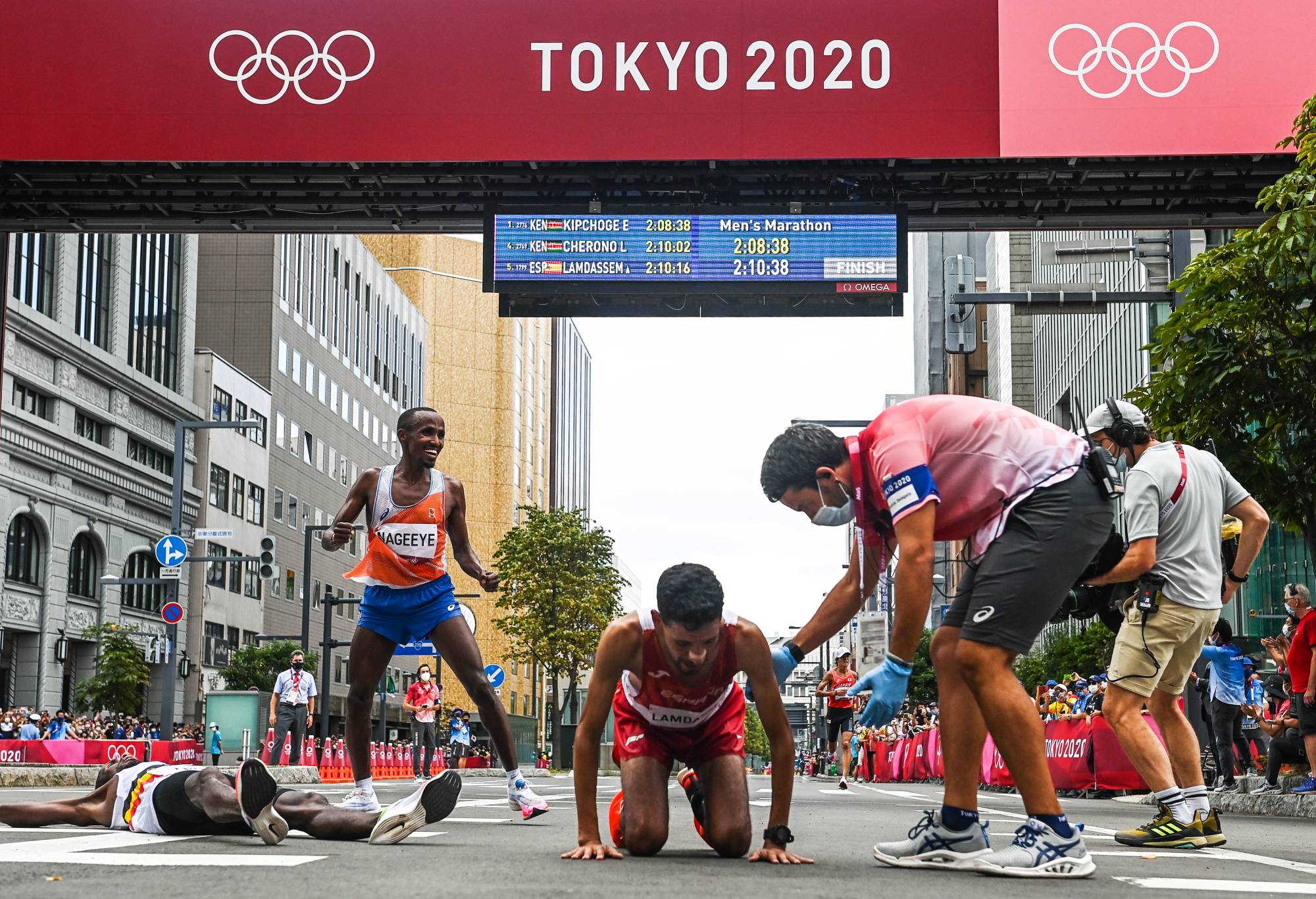
(Photo By Ramsey Cardy/Sportsfile via Getty Images)
Eliud Kipchoge winning the men’s marathon wasn’t an underrated moment.
In fact, he’s now arguably the greatest marathon runner of all time after he strode to victory by more than one minute.
What was underrated were the other 75 men who finished the marathon behind him.
Kipchoge is in a league of his own and a 2:08 marathon was easy pace for him even in the worst possible conditions. For everyone else, trying to run sub 2:10 in 27 degrees and 77 per cent humidity was horrendous.
Thirty runners didn’t finish the event – many cracked inside the first hour. It’s so rare to see elite marathon runners failing to make it to the 14km mark. This was the Olympics and yet a third of the field just couldn’t finish the event they’d trained for years to achieve. It just shows you how tough it was out there in Sapporo.
Kipchoge was the headline but those who managed to cross the line, including last-placed Ivan Zarvo Alvarez from Honduras who could barely put one foot in front of the other as he finished in 2:44, deserve just as much praise for their efforts.
New sports and new events
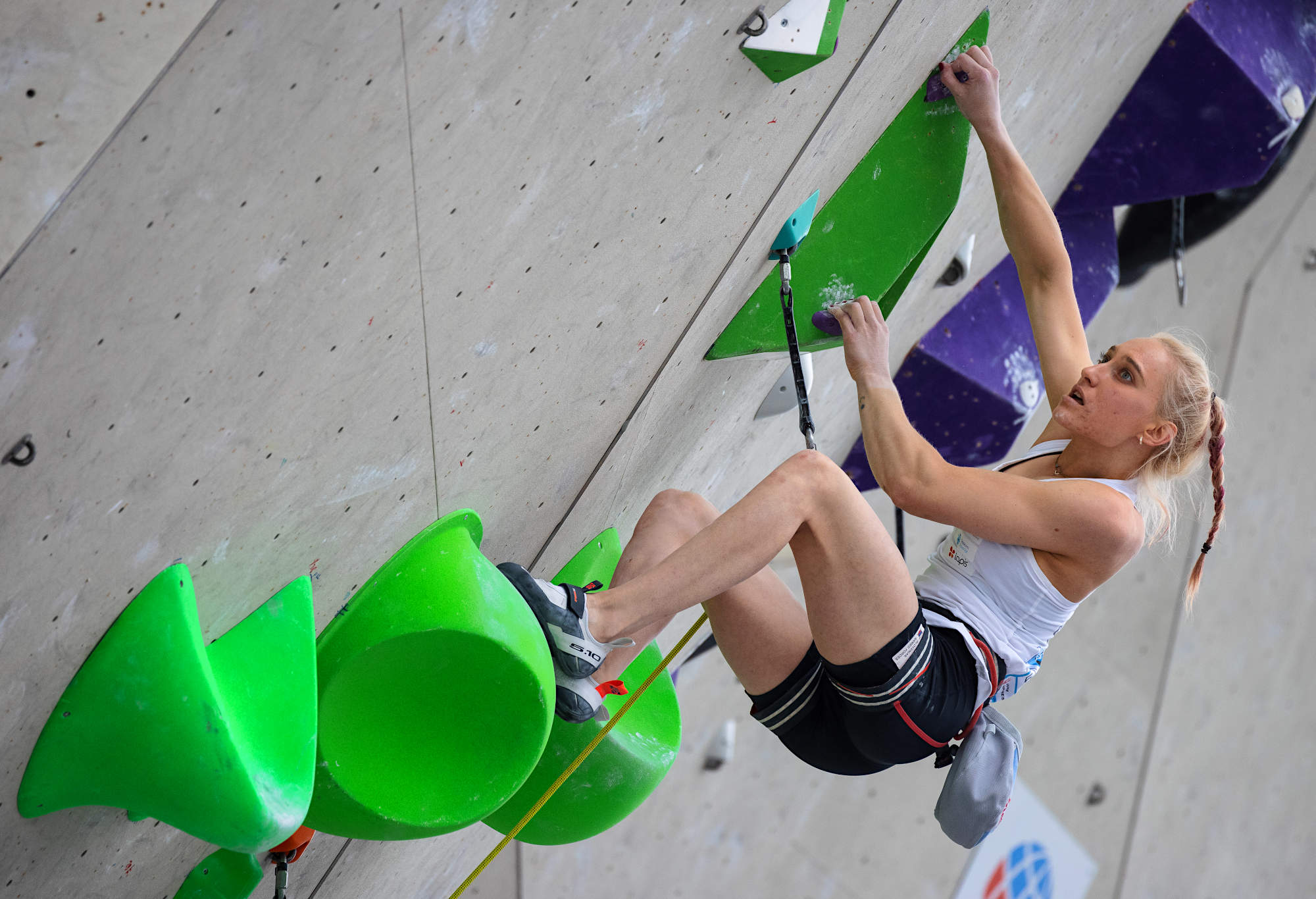
Janja Garnbret of Slovenia. (Photo by Marco Kost/Getty Images)
Ok, I’ll admit it, I’m a fuddy-duddy. The first Olympics I can remember was 1976 when there were 21 sports on the menu. In Tokyo, we had 50. Back then, the very idea of beach volleyball was ludicrous – and beach volleyball with DJs playing to empty stands? Don’t get me started.
But, shockingly and against everything I expected from myself, some of the best moments from this Games has been seeing new sports and the way athletes have responded to their inclusion. Those cool young things down at the skate park, hugging and encouraging their rivals, revelling in their gnarl, brought out my proud dad vibes.
Loved everything about the women's skateboarding. I'm not sure there is a sport that reflects the ideals of the Olympics. The talent is exceptional but the camaraderie and genuine joy from the competitors is refreshing.
— Andrew Gaze (@AndrewGaze10) August 4, 2021
Skateboarding didn’t have it all its own way as the buzziest new sport on show as the sport climbing entranced as super-fit men and women flew Spider-Man like up the fake rocks at breathtaking speeds.
Meanwhile, even more traditional sports, such as swimming and triathlon, changing it up with mixed team’s relays added an excellent twist at an event that hasn’t always had the best record in equal rights and inclusion.
Rugby star’s wild interview
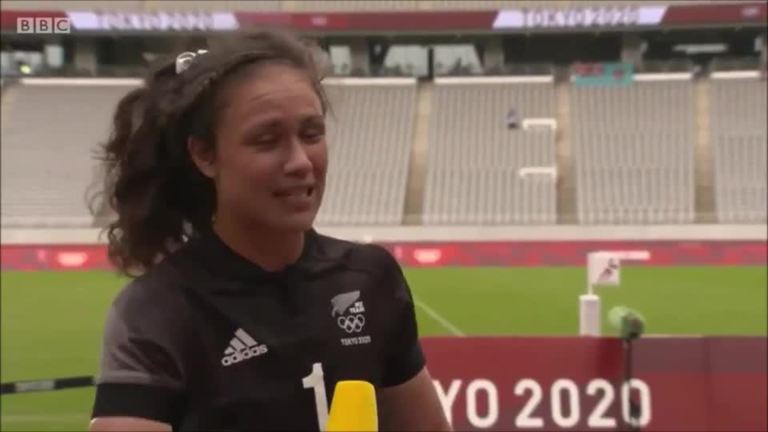
BBC Screenshot
There were 10,305 characters at the Tokyo Olympics so it takes someone special to really stand out. Kiwi seven rugby player Ruby Tui became a worldwide sensation, nailing the Olympic spirit in her interview with the BBC – as she called them ‘Better Be Careful’.
I can’t pretend I understood it all but her infectious personality shone through while declaring “Yeah, the Russians are cool people man. They are a bloody tough, tough team,” and “don’t be fooled, lots of running. My GPS blew up,” along with her thoughts on Team GB.
And her sign off when asked about the threatening weather is what we want from every Olympian. “We’re at the Olympics. Let’s be happy. Let’s compete safely and peacefully. Peace and love. Love you guys.”
Erriyon’s arrival
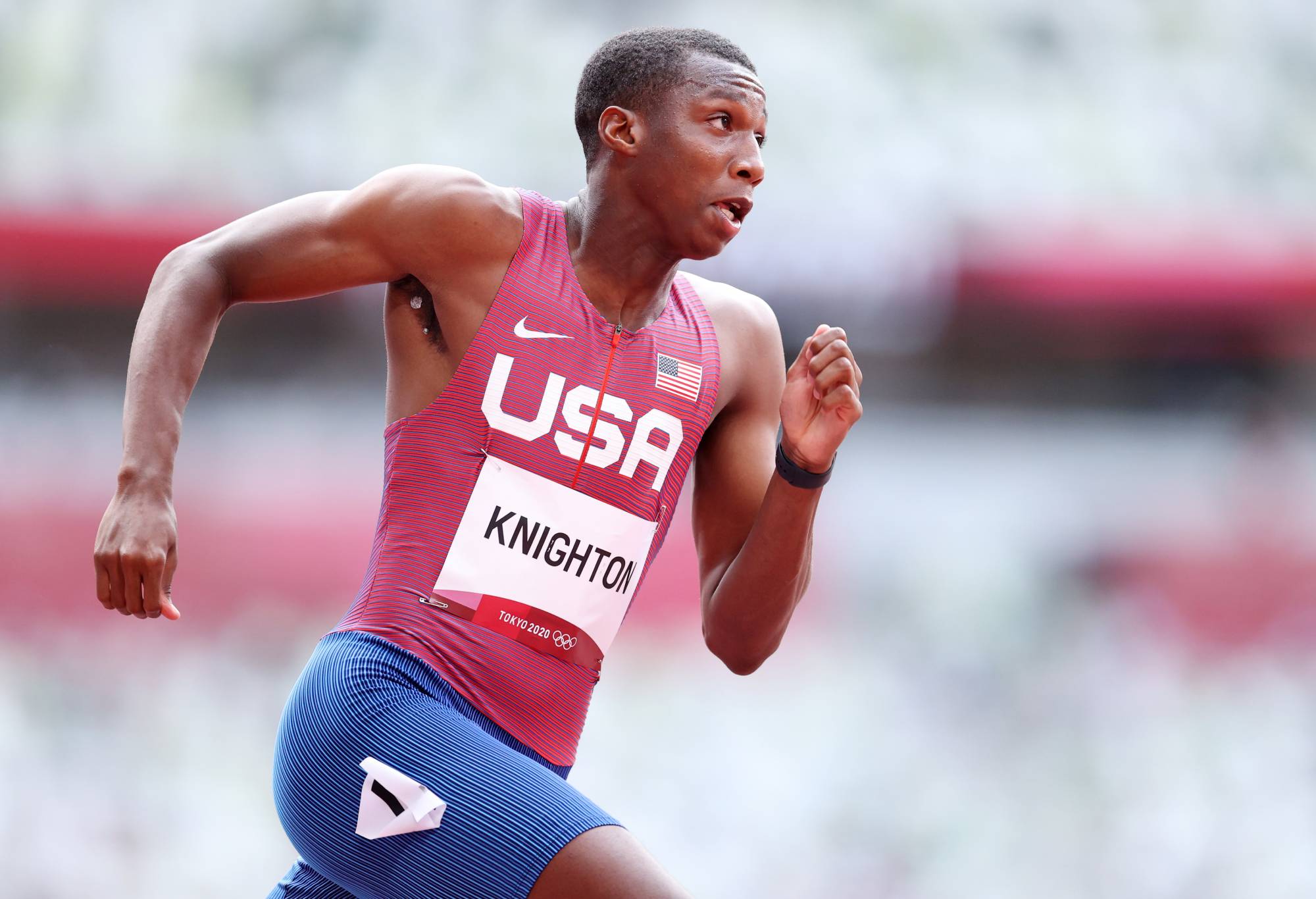
(Photo by Getty Images).
While skateboarding and sport climbing were great fun, the fuddy-duddy in me always returns to track and field for the most significant takeaways of an Olympics. With track fans moving on from Usain Bolt, we got a look at 17-year-old American Erriyon Knighton, who took up running just three years ago and was sublime in finishing fourth in the men’s 200m event.
Paris is only three years away and he’ll be hard to stop when that comes around. Can’t wait.
Palau’s big boppa makes a splash in the pool
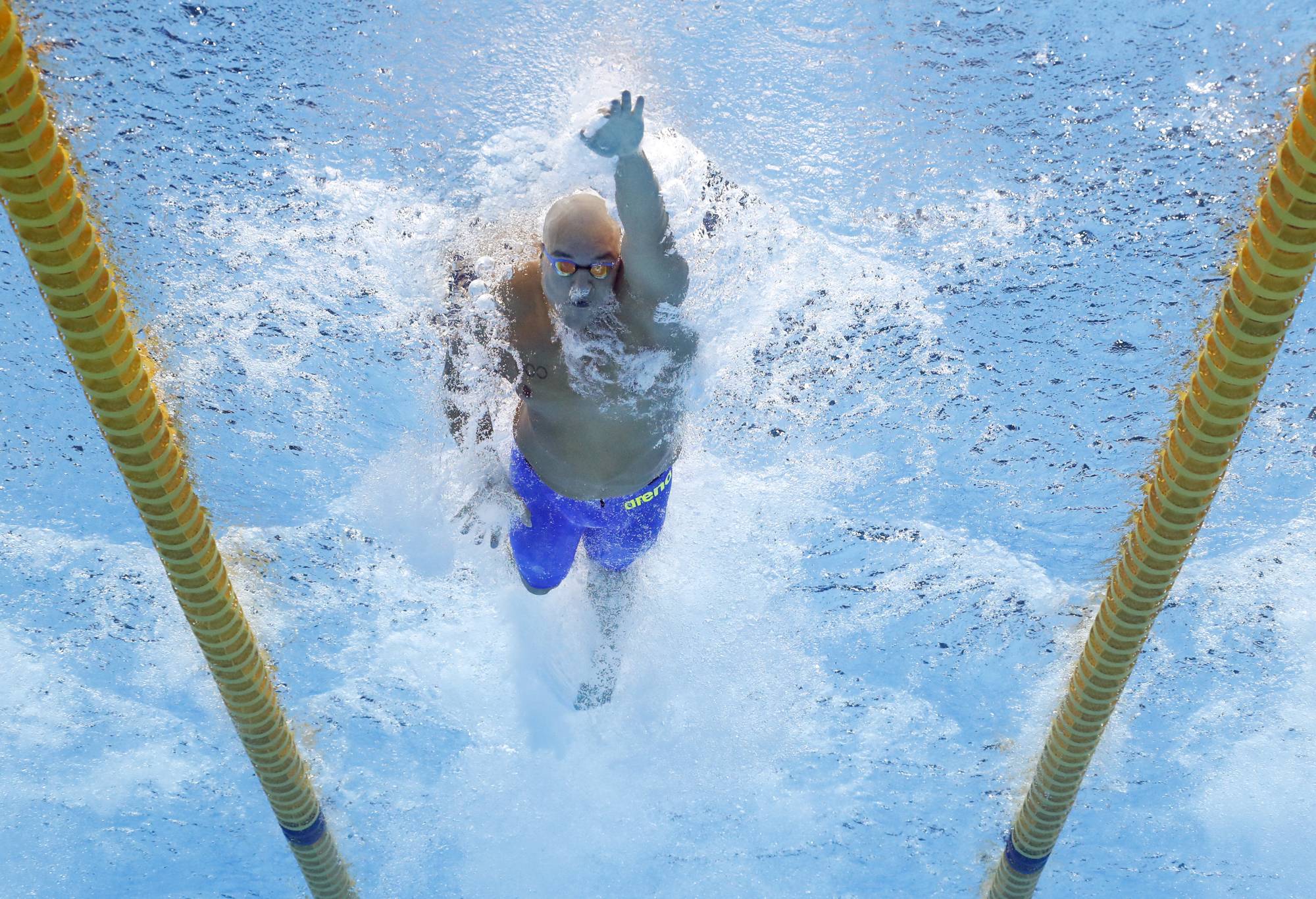
Shawn Dingilius Wallace (Photo by Tom Pennington/Getty Images)
One of the many things that sets the Olympics apart from other global sporting events is that there’s a sport to suit every body type.
The lean and spindly folk have their events and those with a more solid build have theirs.
When those worlds collide, however, you get great telly.
Enter Palau’s Shawn Dingilius-Wallace. The 27-year-old – at his second Olympics – immediately caught my eye in the 50m freestyle heat with a frame that seemed irreconcilable with swimming’s fastest sprint.
But the big boppa delivered, crossing the pool in a scorching (by mortal standards) 27.46 seconds. It wasn’t enough for him to progress any further, but it’s a heck of a lot better than I can do and it earned him my eternal admiration.
The glove-mobile delivering pitchers to the mound
If you’ve ever been lucky enough to visit Japan, you’ll know they really don’t do things normally.
We saw the throwing projectiles in track and field events being returned by wheeled robots and we even saw a basketball robot sinking shots during breaks on the court – but what caught my eye was what they did in baseball.
For those unfamiliar, reserve pitchers in baseball sit in a separate area to a team’s reserves in other positions – normally at the very back of the field. So, when the manager wants a new pitcher, they make a phone call and the new slinger makes a long walk from the bullpen to the mound.
It’s a problem absolutely nobody thought needed solving, but Japan went ahead and did it anyway by employing someone to drive a small vehicle – similar to the ones you see at airports – to courier players instead.
Only just learning that in the Olympic baseball, the pitchers were 'delivered' to the diamond on a golf cart with a baseball glove shaped seat. pic.twitter.com/0jrxBYul1F
— Tomos (@TomosMonpot) August 7, 2021
The best part? The player didn’t sit in a normal seat, they got to sit in a giant baseball glove. Incredible.
One fan becomes the cult hero of the games
The Tokyo Olympics have run far more smoothly than I think any of us imagined.
However, the sad reality is almost every event has taken place in front of empty stands.
Luckily, we had one man ensure the quality of the local support more than made up for its lack of quantity.
Bless ❤️
(via IG/Shiray Kaka) pic.twitter.com/U0uOdrrUCt
— 7Olympics (@7olympics) July 27, 2021
How good is that? There’ll be a codger cynical about the message somewhere, bemoaning the world going soft, but the fact is any athlete who has managed to get themselves into Olympic shape over the last 18 months and compete in any event should be immensely proud of themselves.
I’m glad we had a spectator there to broadcast that message.
Canadian’s eye-opening gold
Australia dominated the pool at this year’s Olympics… but they didn’t have it all their own way.
It wasn’t just Canadian Maggie MacNeil’s win in the 100m butterfly that I loved – her reaction to it quickly went viral.
Maggie MacNeil squinting at the board because she can't see without her glasses, I feel that. pic.twitter.com/gpMaoY79Yp
— ????lostinhistory???? (@gothamoracle) July 26, 2021
After touching in first, MacNeil, who is nearsighted, squinted up at the board to see where she’d placed and it took a few seconds to sink in that she was a newly minted gold medallist. It was almost worth Emma McKeon ‘only’ finishing in third just for that.
Lovely touch proves sportsmanship isn’t dead yet
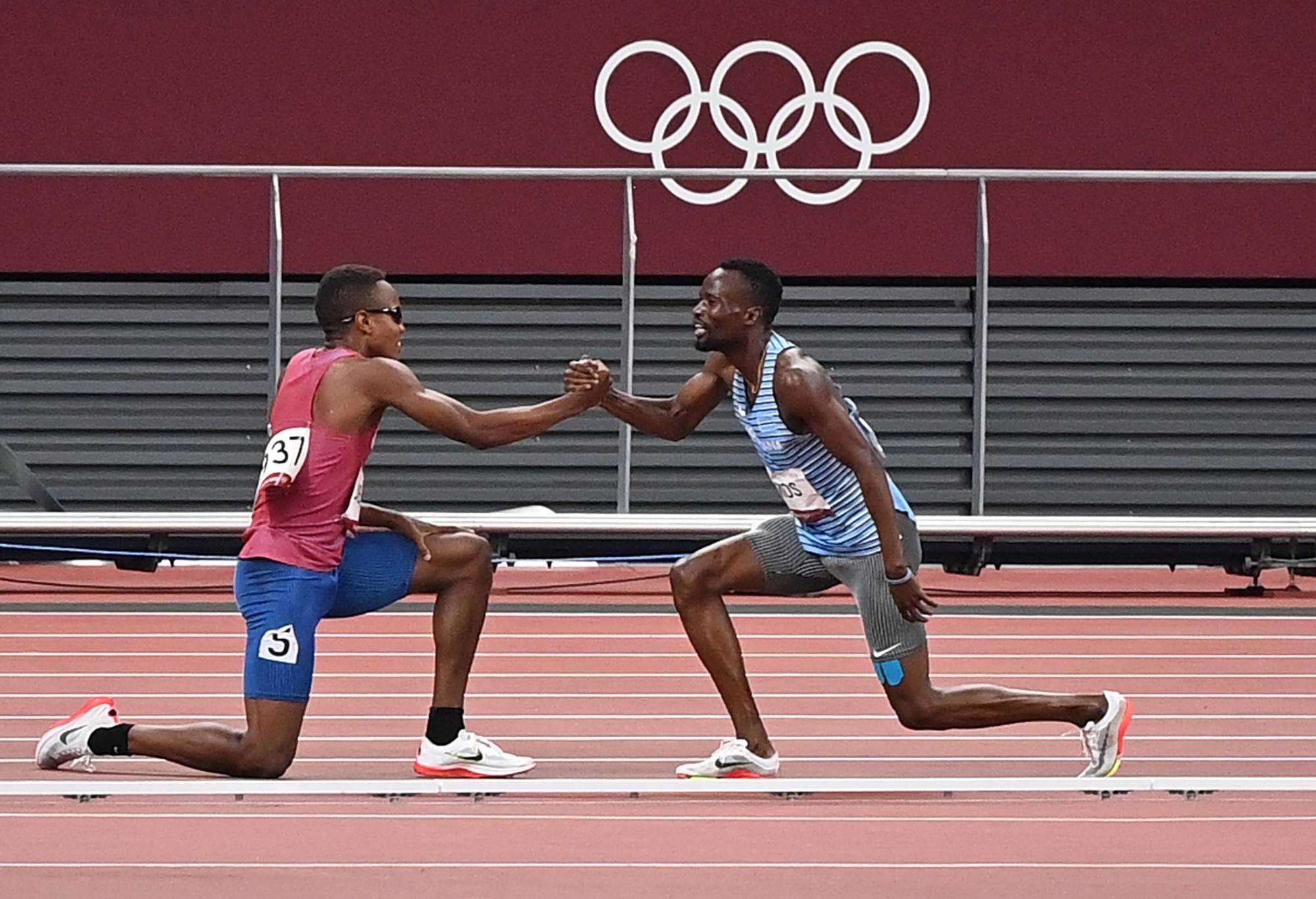
Isaiah Jewett of the United States and Nijel Amos of Botswana (Photo by Jia Yuchen/Xinhua via Getty Images)
In these uncertain times, it’s been great to see some real camaraderie between the nations at this Olympics.
From Mutaz Essa Barshim and Gianmarco Tamberi embracing after sharing the gold in the high jump, to Katie Ledecky and Ariarne Titmus putting their rivalry aside to congratulate one another on their respective medals, everyone (unless you’re a Jamaican sprinter) really seemed to get along.
The highlight for me came in the 800m heats, when the USA’s Isaiah Jewett and Botswana’s Nijel Amos collided with one another, taking them both out of the running.
They chose to help each other back up and complete the race together, the sight of the pair going arm in arm over the finish line enough to bring a tear to the eye.
Who says you need to get a medal to be a winner at the Games?
Eight-time Olympian’s fitting farewell
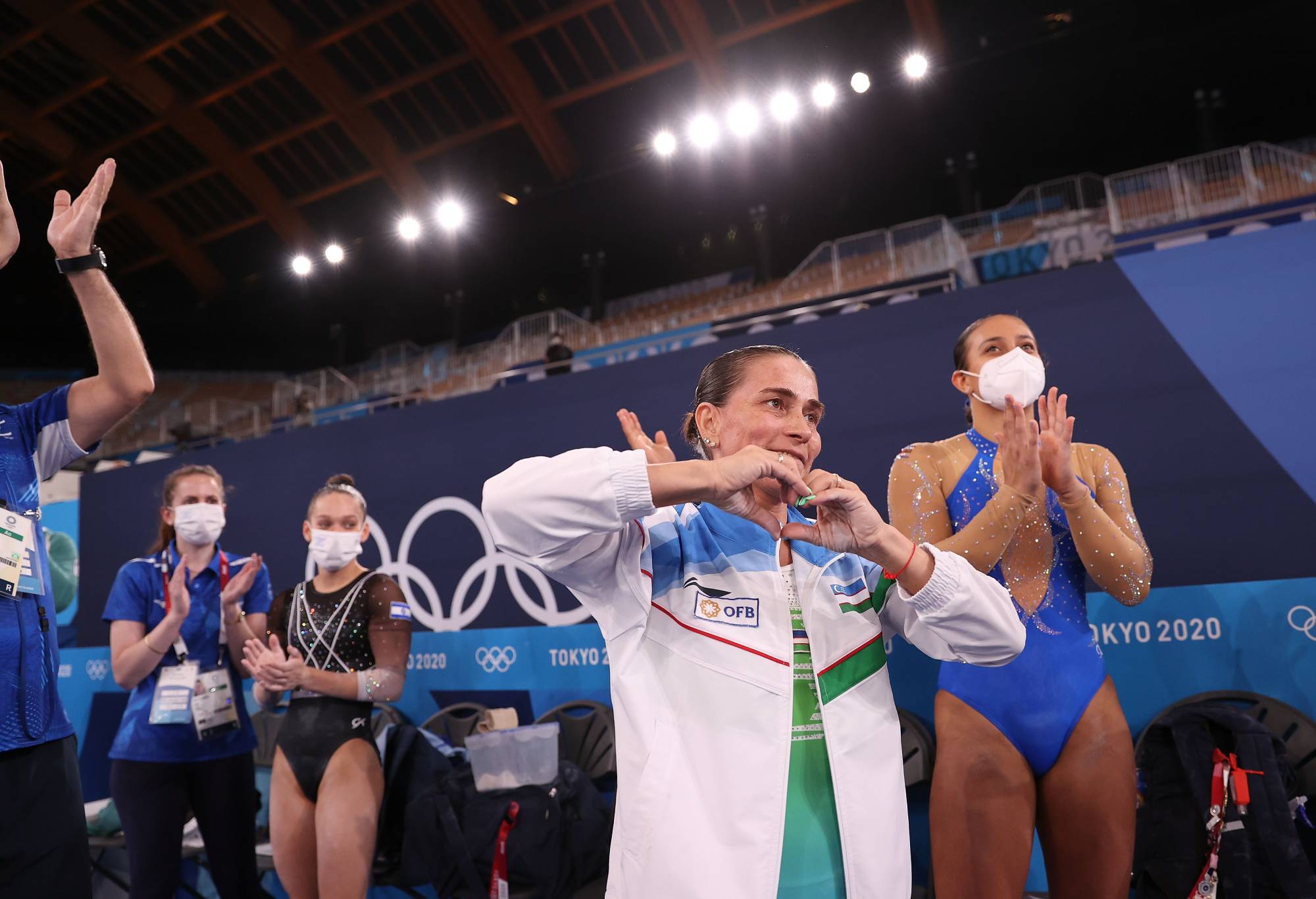
Oksana Chusovitina (Photo by Cao Can/Xinhua via Getty Images)
Eight Olympic Games. It’s been half a lifetime since Uzbekistan gymnast Oksana Chusovitina won gold in her first outing, 1992 Barcelona. To put that into perspective, that was five years before Simone Biles was born.
Now 46, the veteran narrowly missed out on qualifying for the vault final… but it didn’t matter in the least.
Fittingly, the rest of the field chose to give her a standing ovation as she heads into retirement.
‘It’s our time to go’: Scola, Gasol brothers ride off into the sunset
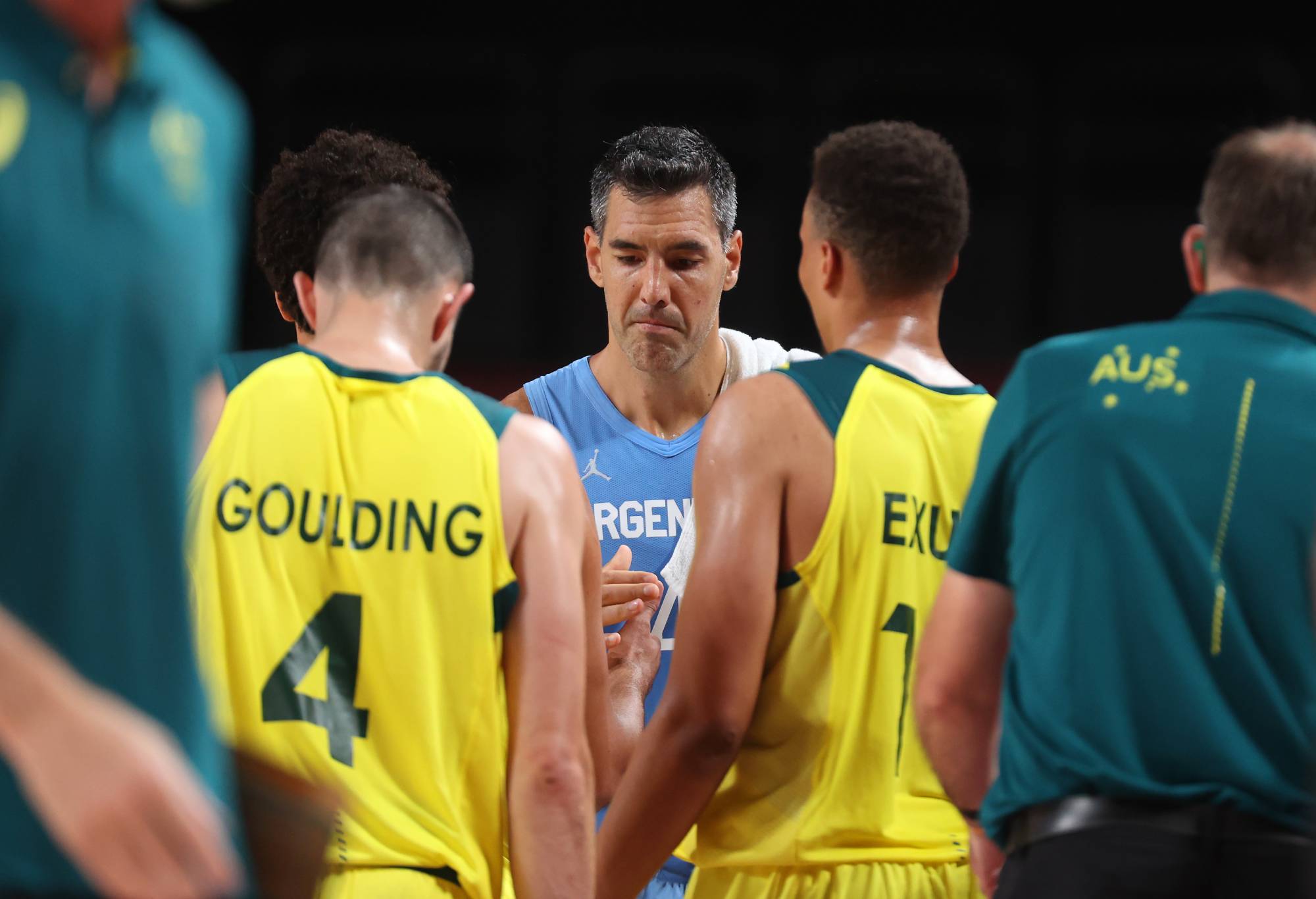
(Photo by Getty Images)
Basketball is my vice, in a good way. That’s what made it really hard to see the back of three absolute legends of the international game.
The last remaining squad member from Argentina’s amazing gold medal in Athens, a 41-year old Luis Scola did his best to drag Argentina through the group stage but fell short against the Boomers. He still top-scored for his country throughout the tournament and earnt himself a beautiful ovation from the Aussies. It was a classy moment from Australia to call a timeout and honour the Argentinian, but it was still a real tragedy that a teary Scola didn’t have a stadium full of ball fans to send him off.
Likewise, Pau and Marc Gasol deserved the same. Cornerstones of the Spanish basketball team for so long, the two bigs will be missed as they confirmed this was their last outing for the international team.
Mutaz Barshim and his sunnies
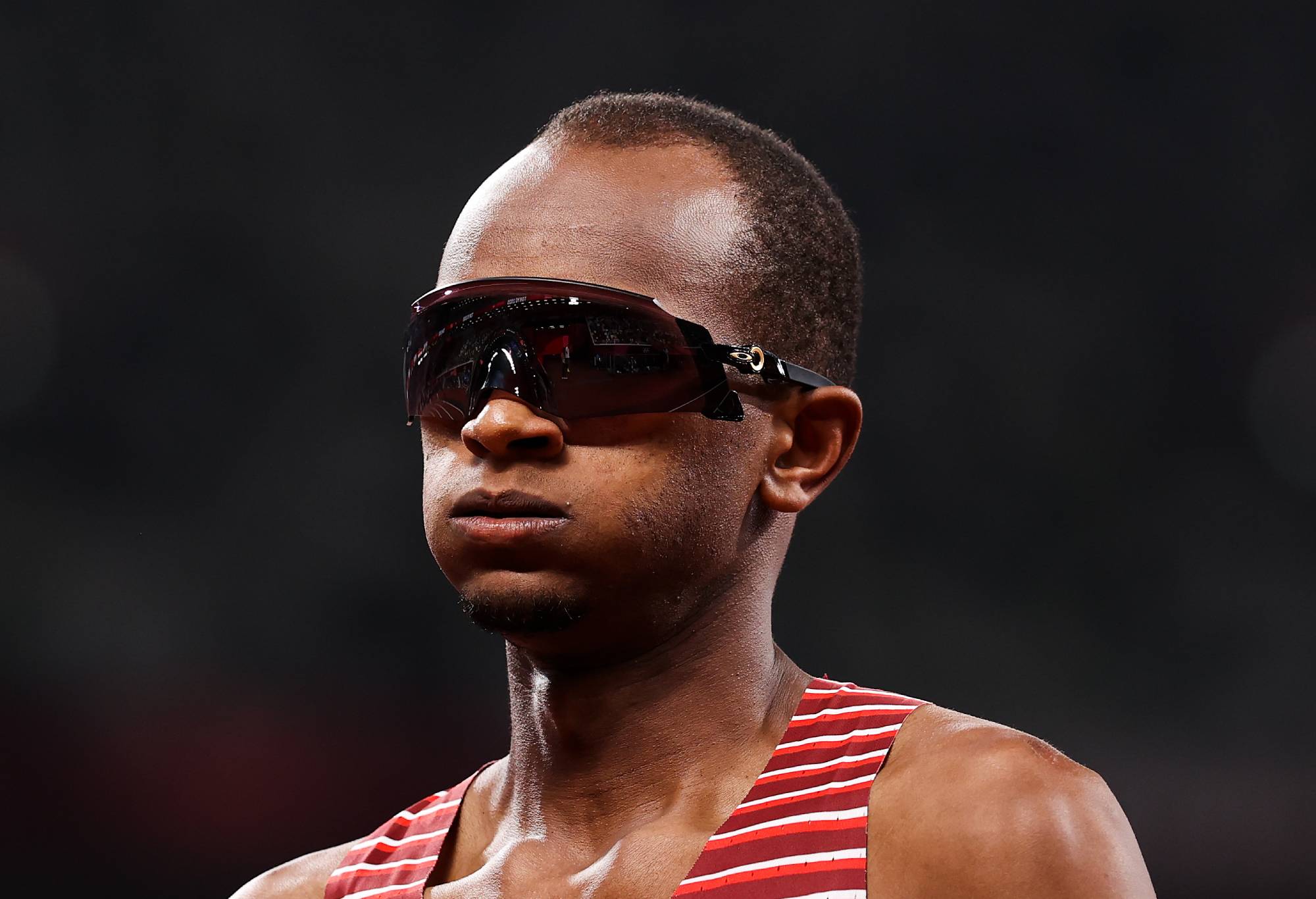
Mutaz Essa Barshim (Photo by David Ramos/Getty Images)
I didn’t see a cooler customer at the Olympics than Mutaz Barshim.
Despite taking out the high jumping gold medal in magnificent scenes, there was something else glaringly bizarre about his performance. The Qatar representative competed in $300 sunglasses the whole time. It was a night event.
Flying about, he broke one set after swatting the heck out of it when celebrating a successfully cleared jump. To which Barshim exclaimed afterwards that it was “OK…. I’ve got like 50 pairs” as he whipped out another set.
Knitting in the next Olympics?
No, those weren’t chopsticks in Olympian Tom Daley’s hands, they were knitting needles. Great Britain’s diver went viral during the Tokyo Olympics but not for his performance.
Daley took out the gold medal alongside Matty Lee in the the men’s synchronised 10m platform. But he was also in the limelight for knitting jumpers and, in an underrated alpha move, a cosy to house his gold medal!
not tom daley knitting at the olympics i- pic.twitter.com/E70zamUhvk
— sarah (@livrodcloset) August 1, 2021
The gold medallist said that it helped relieve stress in breaks between competition. With the influx of new sports introduced into the Games, let’s strike a line through the crocheting relay for Paris 2024.